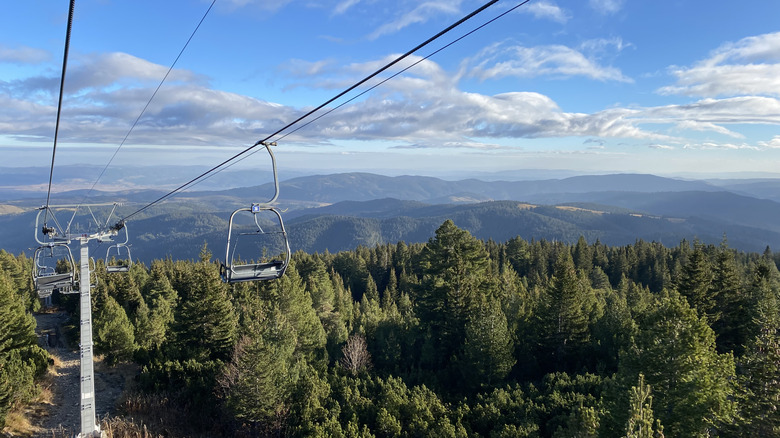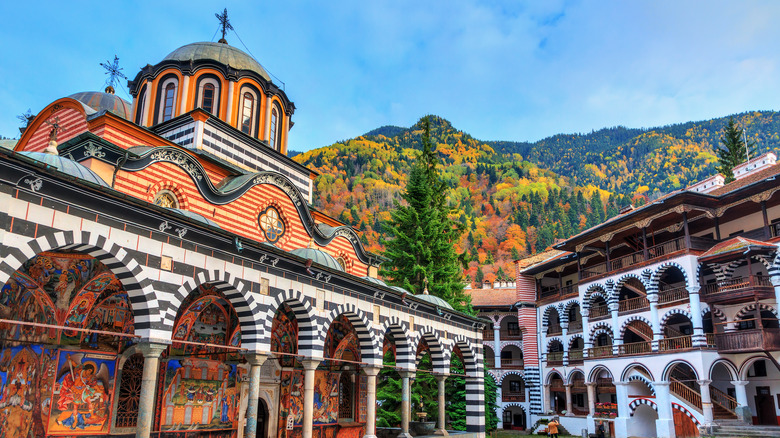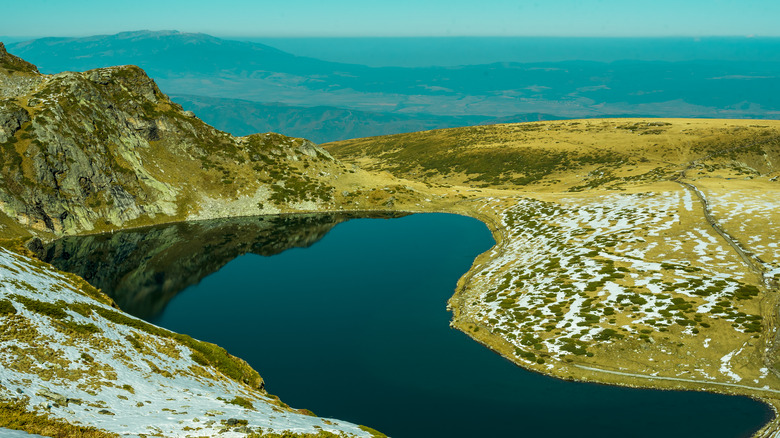Let’s face it. There are plenty of us humans in the world, and we’ve taken over a lot of land. Having places set aside where we can still see natural beauty, animals in their habitats, and sometimes, remnants of our own history is a wonderful thing. Getting a chance to visit them reminds us of the sheer perfection of nature. Some of them, like America’s beautiful and popular Yosemite National Park, are very well-known, and others, like the one we’re talking about today, are on the underrated side. You may not have heard of Rila National Park in Bulgaria, about 83 miles from the country’s capital, Sofia, but you must add it to your vacation bucket list.
Rila National Park is the largest in Bulgaria and has a wealth of experiences for visitors, no matter what time of year you go. You can check out a thousand-year-old monastery, see wild horses, hike to seven stunning lakes, soak your sore muscles in the area’s hot springs, climb to the top of the highest peak in the Balkans, and ski in a more-than-a-century-old resort. Here’s what you need to know about Bulgaria’s lovely park in the mountains.
All about Rila National Park

Established in 1992, Rila National Park covers just under 313 square miles. There are 120 lakes in the park year-round, with more appearing seasonally, depending on rain and snowfall. Some of those lakes comprise part of the Seven Rila Lakes Hike, which is a 6.2-mile loop. This is best done from July through September and is moderately challenging. It’s a popular hike, so you may have a lot of companions as you go, particularly on the weekends. You’ll begin at Sapareva Banya on the edge of the park, where you’ll take a chairlift to the Rilska Ezera Hut, which you can stay in if you like. In the three- to five-hour trek, you’ll see Lower Lake, Fish Lake, Trefoil Lake, The Twin, The Kidney, The Eye, and The Tear, which is the highest at 8,317 feet above sea level. There are designated camping spots around the area and a chalet on the shore of Fish Lake. You can also take a gondola to Yastrebets Peak and continue up to Musala Peak at 9,597 feet above sea level.
Keep an eye out for local wildlife, like eagles, deer, wild boar, and even wild horses, which you may see running in herds. When you get back down to Sapareva Banya, rest your muscles in one of the hot springs. The main spot is Kotvata Aqua Club in the middle of town.
Things to do in Rila National Park

While you’re in the park, don’t miss the UNESCO World Heritage Site, Rila Monastery (seen above). It’s in the Rila Monastery Nature Park inside the national park. It was founded in the 10th century by the hermit St. John of Rila, who lived there. Though it was destroyed by fire in the early 19th century, it was rebuilt shortly after. There is also a bakery on-site at the monastery where you can try fried dough treats called mekitsa.
If you don’t have a car, try this multi-stop self-guided trip that provides transport for about $54 per person. It takes around 13 hours and connects you between the Seven Rila Lakes area, the Rila Mountains, St. Alexander Nevski Cathedral, and the Rila Monastery, with time allotted for some hiking. You’ll also have to pay for the chairlift yourself, which costs around $14 per person.
If you ski, visit the Borovets Hills Ski and Spa, which combines three ski centers called Sitnyakovo, Markudjik, and Yastrebets, making it one of the largest ski areas in the country. An adult ski pass for the day is $50. The best time to visit for great snow is December through May, which fits right in for the best time to visit Bulgaria on a budget. Bulgaria is one of two European countries that recently joined the Schengen Area, which means you won’t need to pass through border control if you’re coming from another country in the zone.

